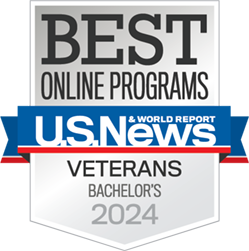
Impact health care through policy, patient-centeredness, improvement science, and culture change
100% Online
24 Months*
The online Master of Science in Health Sciences (MSHS) in Health Care Quality program was developed for health care professionals aspiring to become patient safety and quality leaders and meet the growing demand for quality-based care.
*The total number of credits and duration of the program depend on the number of transferred credits
Program Highlights
- The program is completed 100% online in just 24 months with no visits to campus required; all coursework is delivered asynchronously fully online in a flexible format
- Accredited by the Commission on Accreditation of Healthcare Management Education (CAHME). The MSHS in Health Care Quality program is one of the first quality & safety programs in North America to achieve CAHME Accreditation.
- Created in partnership with the National Committee for Quality Assurance (NCQA)
- The program is ideal for health care professionals looking to advance into leadership roles in health care quality, patient safety, or research
- Since 2010 the program has been graduating leaders who impact health and health care delivery across the U.S.
Program Outcomes
After completing the program, students will be able to…
- Evaluate appropriate quality improvement patient safety, leadership, organizational change, and research theories/standards applicable to healthcare
- Develop quality and patient safety improvement initiatives
- Assess information technology systems to determine the level of support for quality improvement
- Formulate organizational change plans to sustain a quality-focused culture
Request Information
* Indicates required field
- Read: Privacy Disclaimer Acknowledgment
-
By submitting your contact information, you are providing your express consent authorizing GW and GW's representatives to contact you by email, phone, or text (including the use of an automatic dialing system). Standard text messaging and/or data rates may apply.
If you do not provide your contact information (phone and email), we may not be able to provide you with the information you requested.
If you provided your contact information but no longer wish to receive phone calls, emails, or text (SMS) messages from GW, you will have the option to opt-out. Emails and Text messages will include details for unsubscribing/opting out. To opt out of receiving phone calls from GW, contact us via email at info [at] hsprograms [dot] gwu [dot] edu (info[at]hsprograms[dot]gwu[dot]edu) or text/ call: 202-792-2819.
By submitting your information via this form, you also confirm that you have read and understood the GW Statement of Privacy Practices.
Note that the consent requested above is not required for enrollment in GW's programs. If you do not consent to providing the information requested on this form, you may contact us via email at info [at] hsprograms [dot] gwu [dot] edu (info[at]hsprograms[dot]gwu[dot]edu) or text/ call: 202-792-2819.

The faculty was great overall. They are knowledgeable, caring and provide a variety of accessible instructional methods to learn the curriculum of the program.
- wendy frisby, mshs in health care quality alumna, ‘17
Accreditation and Rankings
- GW is accredited by the Middle States Commission on Higher Education
- #62 Best National University*
- #13 Best Online Bachelor's Programs*
- #7 Best Online Programs for Veterans*
* The U.S. News & World Report – 2024 Rankings


Curriculum
The MSHS in Health Care Quality requires successful completion of 36 credit hours. This comprehensive and rigorous curriculum covers 13 domains and 20 competencies related to health care quality and safety while focusing on quality improvement, patient safety science, leadership, and evidence-based practice.
Career Outlook
Designed to meet the growing demand for patient-centered, quality health care, GW’s MSHS in Health Care Quality program prepares students with a comprehensive base of real-world skills including data management, analysis of clinical research, and organizational leadership.
There is an expected 32% increase in jobs for Medical and Health Services Managers between 2019 and 2029. The median income for professionals in this category is $104,280 in 2020.1
The online program prepares graduates to fill a variety of roles in health care including:
- Clinical Director, Quality Services
- Clinical Nurse Auditor
- Compliance Auditor Analyst
- Director of Quality Management
- Health Care Manager
- Health Care Quality Analyst
- Quality & Safety Specialist
- Quality Assurance Consultant
- Quality Improvement Nurse
Admission Requirements
To apply for the MSHS in Health Care Quality, you’ll need:
| Completed application |
| 3.0 GPA or above on a 4.0 scale |
| Bachelor’s degree |
| Resume/CV |
| Personal statement |
| Two letters of recommendation |
Tuition Details
The MSHS in Health Care Quality at GW consists of 36 credit hours. Explore the cost per credit hour and total estimated program costs.
Note: Tuition rates are subject to change and additional fees may vary by program.
The program and program goals were aligned with leading organizations in the health care quality field. The online format allowed the flexibility I needed to pursue a graduate degree as a military service member at home and abroad.
– angel rivera, mshs in health care quality alumnus, ‘19
Meet the Program Director

GW’s experienced faculty provide you with the rich, practical knowledge and support needed for you to succeed in the program and in your career.
Sabrina Figueiredo, PhD, MSc
- Read Full Bio
-
Sabrina Figueiredo, Ph.D., MSc, joined the George Washington University (SMHS) as director of the Health Care Quality (HCQ) Program in 2020. Figueiredo comes to GW from McGill University in Montreal, where she served as assistant director of the physical therapy program.
Figueiredo has 20 years of clinical experience in physical therapy, where she focused on rehabilitating seniors and individuals with musculoskeletal disabilities. Her research portfolio, however, is focused in HCQ. “I’m interested in patient-centered outcomes and the coordination of care — how we can deliver health care services based on patient expectations,” she said.
Figueiredo also studies creating innovative measurement strategies to contribute evidence to patient-centered outcomes and care, as well as developing telehealth initiatives to improve seniors’ outcomes. In partnership with the Children’s National Hospital, Dr. Figueiredo is working on a research project to understand the impact of provider burnout in health care quality.
During her tenure at McGill University, she oversaw initiatives related to curriculum development, program evaluation, and accreditation. She created a program logic model and an assessment-and-implementation plan deemed best practices by the Canadian Physiotherapy Accreditation Regulatory Body.
Sources:
Curriculum Details
36 TOTAL CREDITS REQUIRED
The MSHS in Health Care Quality program (100% online) requires successful completion of 36 credit hours, with 1 elective and 11 required courses.
Core
- HCQ 6200 Introduction to Health Care Quality (3)
-
An overview of the US health care system and the influence of health policy development and implementation on health care quality. Introduction to fundamental concepts of health care quality, patient safety, leadership, and change management. Applicants of the MSHS in Health Care Quality program may use the Certified Professional in Health Care Quality (CPHQ) credential as an accepted equivalent.
- HCQ 6201 Building a Quality Culture (3)
-
Application of leadership and organizational change theories and principles to the implementation of quality and patient safety initiatives. Focus on strategies for developing the culture and infrastructure needed to support patient safety and continuous quality improvement.
- HCQ 6202 Health Care Quality Landscape (3)
-
Analysis of quality and patient safety challenges in U.S. healthcare with a focus on political and environmental influences.
- HCQ 6203 Quality Improvement Science in Health Care (3)
-
An introduction to quality improvement and patient safety theories, models, methods and tools and their application to quality and safety improvement challenges in health care.
- HCQ 6204 Health Care Quality Analysis (3)
-
Involves application of measurement, data management and statistical analysis principles to quality improvement and patient safety challenges. This course focuses on the importance and design of effective measures and the selection of appropriate analysis tools.
- HCQ 6205 Patient Safety Systems (3)
-
Involves an examination of the epidemiology and sources of error in health care, risk assessment and the design of processes and systems to improve patient safety Focuses on the application of process and technology-based systems to reduce the incidence of error.
- HCQ 6275 Leadership and Change (3)
-
Designed for the student to integrate all of the material from the HCQ program of study in a master’s level proposal for a research projects intended to address a major area of a change within health care quality and/or clinical research. The course includes a series of case studies for which the students evaluate and develop strategic alternatives. The final project is designed to have the student develop a proposal similar to chapter one of a research proposal that can then be pursued after graduation or through a doctoral level program.
- HSCI 6264 Epidemiology Translational Research (3)
-
Students explore the basic concepts of epidemiology which includes various epidemiological study designs used to examine disease frequency, cause-effect relationships between risk factors and disease states, and effects of bias as examples. Students apply epidemiologic concepts in the context of translational research.
- HCQ 6206 Health Information, Quality and Outcomes (3)
-
Approaches to medical informatics to support managerial decision making, patient care, and quality improvement in clinical practices. Ethical, legal, and social dimensions of health care information technology.
- COHM 6235 Leadership Development in Health Care Systems (3)
-
Overview of principles related to leadership, including theories and styles, organizational management and values, communication strategies, and change in the context of health care systems. Credit cannot be earned for this course, and HSCI 6223.
- COHM 6245 Strategic and Operational Decision Making for Health Care Leaders (3)
-
Overview of business principles related to health care systems and leadership, focusing on strategic management of health care service delivery in various settings. Credit cannot be earned for this course and HSCI 6241.
Electives
- COHM 6215: Population for Health Care Innovators
-
Key concepts of population health; historical perspective on healtcare in the United States; public health as a health system; regulations and laws; the health workforce infrastructure; interventions.
- COHM 6320: Informatics for Operational Leadership and Health Care Quality
-
The life cycle of clinical informatics from a systems theory perspective; clinical informatics and its affiliated data, governance, and interoperability structures. Restricted to students in the clinical operations and healthcare management program.
- COHM 6460: Case Studies in Healthcare Transformation, Quality, and Patient Safety
-
Students learn and apply healthcare transformation, quality management, and patient safety best practices through the use of case studies. Prerequisites: COHM 6215, COHM 6320, and COHM 6430.
- CRA 6201: Critical Analysis of Clinical Research
-
Analyses of the essential components of clinical research including good clinical practice, human subject protection, study design, and trials administration.
- CRA 6202 Medicines Development
-
Examination of nonclinical, clinical, commercial, regulatory and risk assessment strategies required to develop a clinical development plan for an approvable, marketable new therapeutic and propose life cycle management strategies.
- CRA 6203: Partnerships with Human Subjects
-
Regulatory, policy, ethical, and practical considerations associated with the engagement, recruitment, retention, and interaction with human research subjects.
- CRA 6204: The Clinical Research Industry
-
Integration of project management principles, decision making models, cross-cultural competency, and interdisciplinary team dynamics to facilitate effective and efficient conduct of clinical trials.
- INFR 6102: Principles of Medicine in Informatics
-
Survey of clinical medicine and basic concepts related to clinical process, medical vocabulary, anatomy, pathophysiology, and clinical disease management for selected organ systems and health care specialties; evaluation of medical records, clinical decision making, and health providers in the U.S. health care system. Laboratory fee. Restricted to graduate students. Recommended background: graduate students in the data science program or those with prior undergraduate coursework in general biology or anatomy and physiology or pathophysiology. Credit cannot be earned for this course and INFR 4102.
- INFR 6103: Advanced Computing Applications for Biomedical Informatics
-
The course examines advanced scripting skills in the context of biomedical informatics. This is an programming course utilizing current language for applied systems. Proctor fee. Prerequisites: HSCI 6263, INFR 6101 and INFR 6102. Recommended background: graduate students in biomedical Informatics programs. Credit cannot be earned for this course and INFR 4122.
- INFR 6105: Health Care Quality Principles and Practice for Informatics
-
Health care quality theory, principles, and practice for medical informatics professionals. Restricted to students in the biomedical informatics program.
- INFR 6540: Medical Decision Making and Decision Support Systems
-
Clinical decision support systems (CDSS) used in biomedical informatics to assist health care providers with decision making tasks related to patient care and associated quality improvement efforts. Artificial intelligence in medicine. Restricted to students in the biomedical informatics program. Prerequisite: INFR 6121.
- HSCI 6273: Bioinformatics for Genomics
-
Bioinformatics tools for different analytical situations; strengths and limitations of the most common bioinformatics strategies. Generalizing acquired knowledge and its underlying principles and techniques to other types of big data applications for the purpose of interpretation of results.
- HSCI 6263 – Biostatistics for Clinical and Translational Research
-
Basic concepts and methods of biostatistics applied to translational research. Topics include distributions, populations and sample selection, variables, interaction and confounding, hypothesis formulation, correlation, t-tests, ANOVA, regression, and ch.
- CTS 6261: Foundations in Translational Research
-
Overview and analysis of translational research principles and practice; analysis and integration of basic clinical community health and health services research concepts as applied to key diseases.
- RAFF 6204: Clinical Research for Regulatory Affairs
-
The planning and conduct of clinical trials. Topics include protocol development, study design, post-marketing surveillance, and evaluation and assessment of regulatory submissions. Strategies for achieving clinical development goals. Prerequisites: RCR 6201.
Key Dates
|
Fall 20256 |
|
| Application Deadline |
July 20, 2026 (Open) |
Admissions Requirements
To apply for the MSHS in Health Care Quality program (100% online), you’ll need:
| Completed application |
| 3.0 GPA or above on a 4.0 scale |
| Bachelor’s degree from an accredited college or university |
| Resume/CV |
| Personal statement: Applicants must include a 250–500 word essay describing your reasons for undertaking study at GW, your academic objectives, career goals, and related qualifications including collegiate, professional, and community activities relevant to your program of interest. Include any substantial accomplishments not already mentioned on the application form |
|
Two letters of recommendation Letters of recommendation should be from:
Recommender will submit a letter on letterhead with a signature and credentials/contact information via the application portal. |
| Official transcripts from every college and university attended. All non-U.S. transcripts (including those in English) must be evaluated by an accredited foreign credential agency. Please find the list of member organizations here: https://www.naces.org/members. |
| Application fee: A non-refundable application fee of $80 is required. The application fee is waived for active-duty U.S. military, current GW students, degree-holding GW alumni, current McNair Program Scholars, and graduates of minority-serving institutions (MSI). |
| Previous work experience (Health care experience preferred) |
NOTE: This program is authorized, exempt, or not subject to state regulatory compliance and may enroll students from all 50 states, U.S. territories and the District of Columbia.
International Students
Effective Fall 2025
International students should check with individual programs regarding eligibility for visa sponsorship. Generally, online and hybrid programs are not eligible for student visa sponsorship from GW. This would include transfer students from any other institution with an existing visa. To be considered for admission, there are required scores that you will need to meet. Score requirements may differ by school and program so check the admissions requirements for your program.
Applicants who have not completed a post-secondary degree from an institution where English is the sole language of instruction are required to submit TOEFL, IELTS, PTE Academic, or the Duolingo English Test scores to be considered for admission. The following are the minimum scores for admission consideration:
- TOEFL: 600 on paper based, 250 on computer-based, or 100 Internet-based,
- PTE: overall score of 68,
- IELTS: an overall band score of 7.0, with no individual band score below 6.0
- DET overall score of 120.
Undergraduate applicants who meet one of the following conditions may be considered for admission without submitting TOEFL, PTE or IELTS or DET scores:
- You have earned an associate’s degree or higher from an institution where English is the sole language of instruction
- You are a citizen of an English-speaking country
Scores may not be more than two years old. To ensure TOEFL scores are sent to GW, use institutional code 5246. An institutional code is not required to send IELTS or PTE scores to GW. DET scores must be submitted via the Duolingo English Test system directly to GW.
Based on the results of your English Proficiency exam results and your application, you may be required to take English for Academic Purposes (EAP) during your first year of study at GW. Please note that GW evaluates each application holistically so applicants may still be recommended for EAP even if they meet the requirements for exemption. Students placed in EAP courses should anticipate additional tuition expenses as well as possible extension of time needed to complete their degree programs.
Official transcripts from institutions outside the U.S. must be accompanied by an official transcript evaluation from an accredited independent evaluating agency. Please be sure you request a detailed evaluation that includes all course titles, credit hours, grades, U.S. degree equivalency, grade-point averages (GPA), and date of degree conferral (course by course evaluation). For a list of acceptable foreign credential evaluation services, please visit NACES.
Supporting documents not submitted online should be mailed to:
Mail: George Washington University
ATTN: Transcript Processing Center
1415 W 22nd St.
Suite 220
Oak Brook, IL 60523
Alternatively, official electronic transcripts can be sent to: transcripts [at] hsprograms [dot] gwu [dot] edu (transcripts[at]hsprograms[dot]gwu[dot]edu)